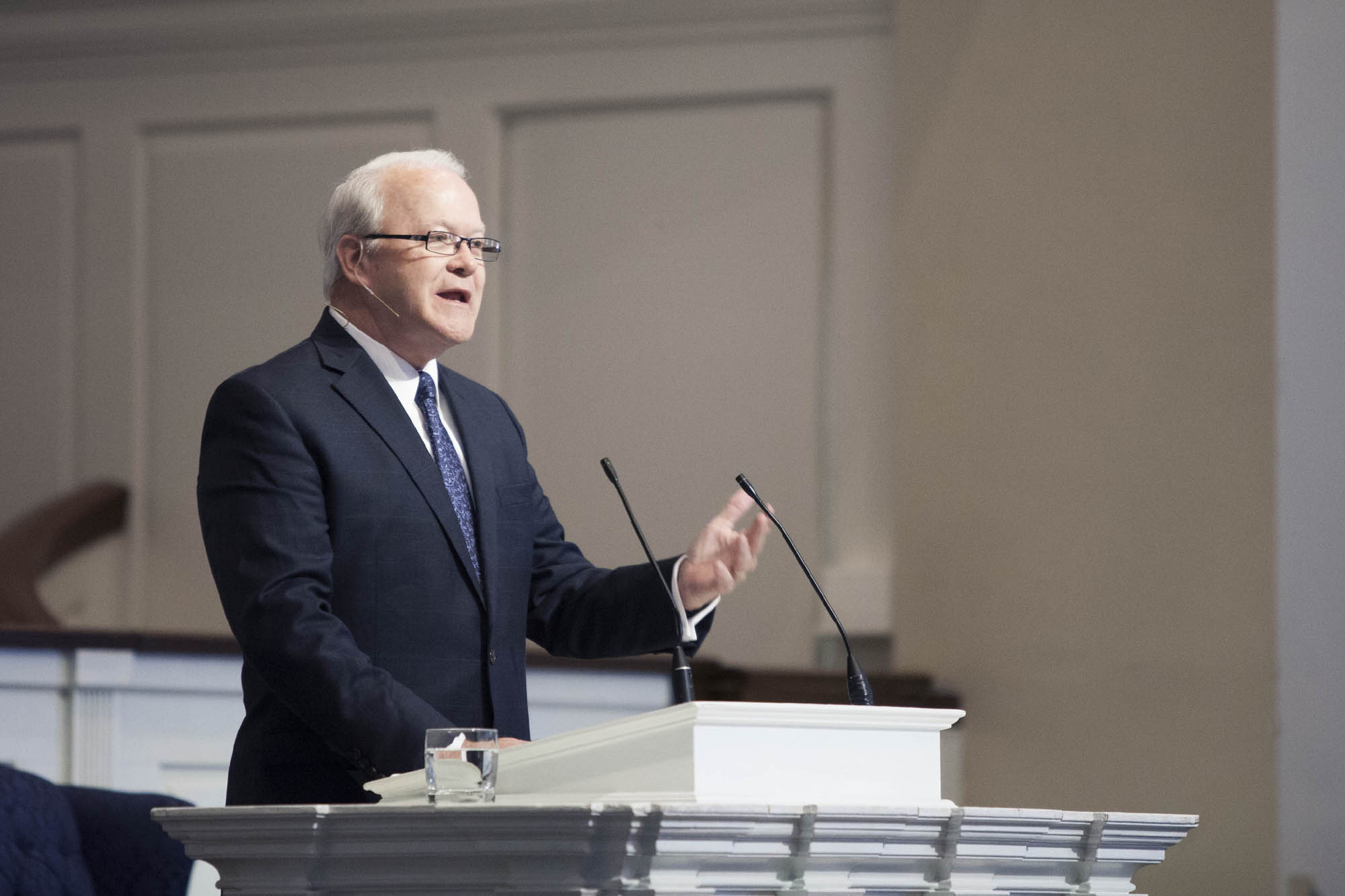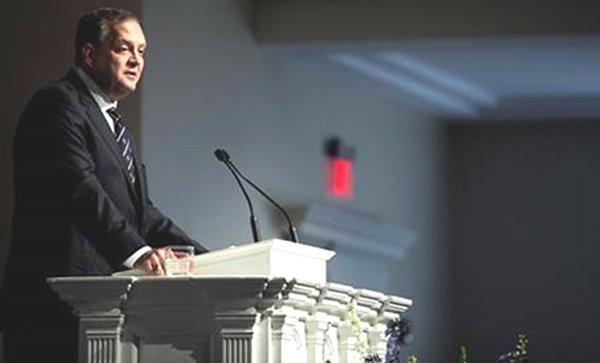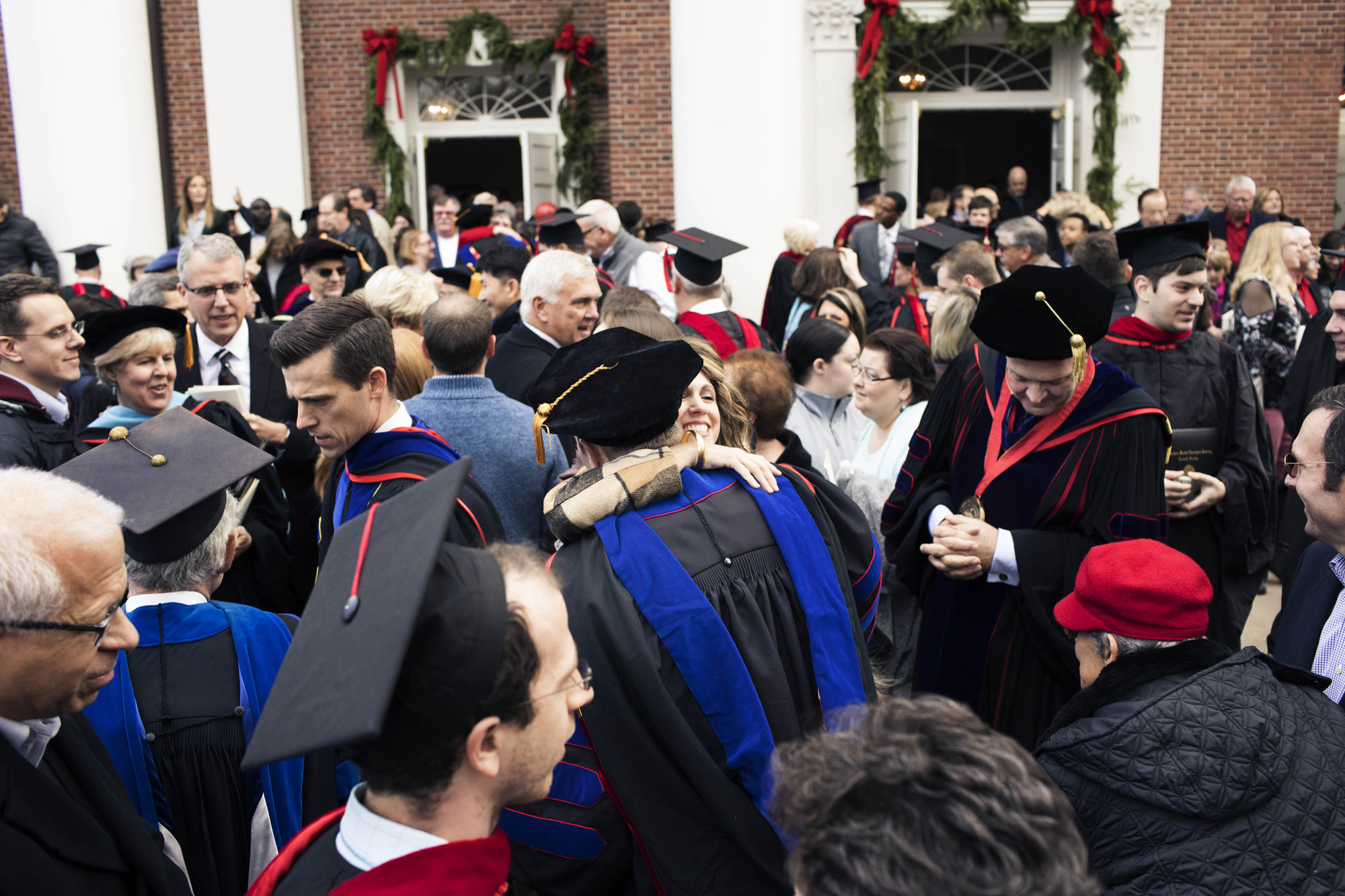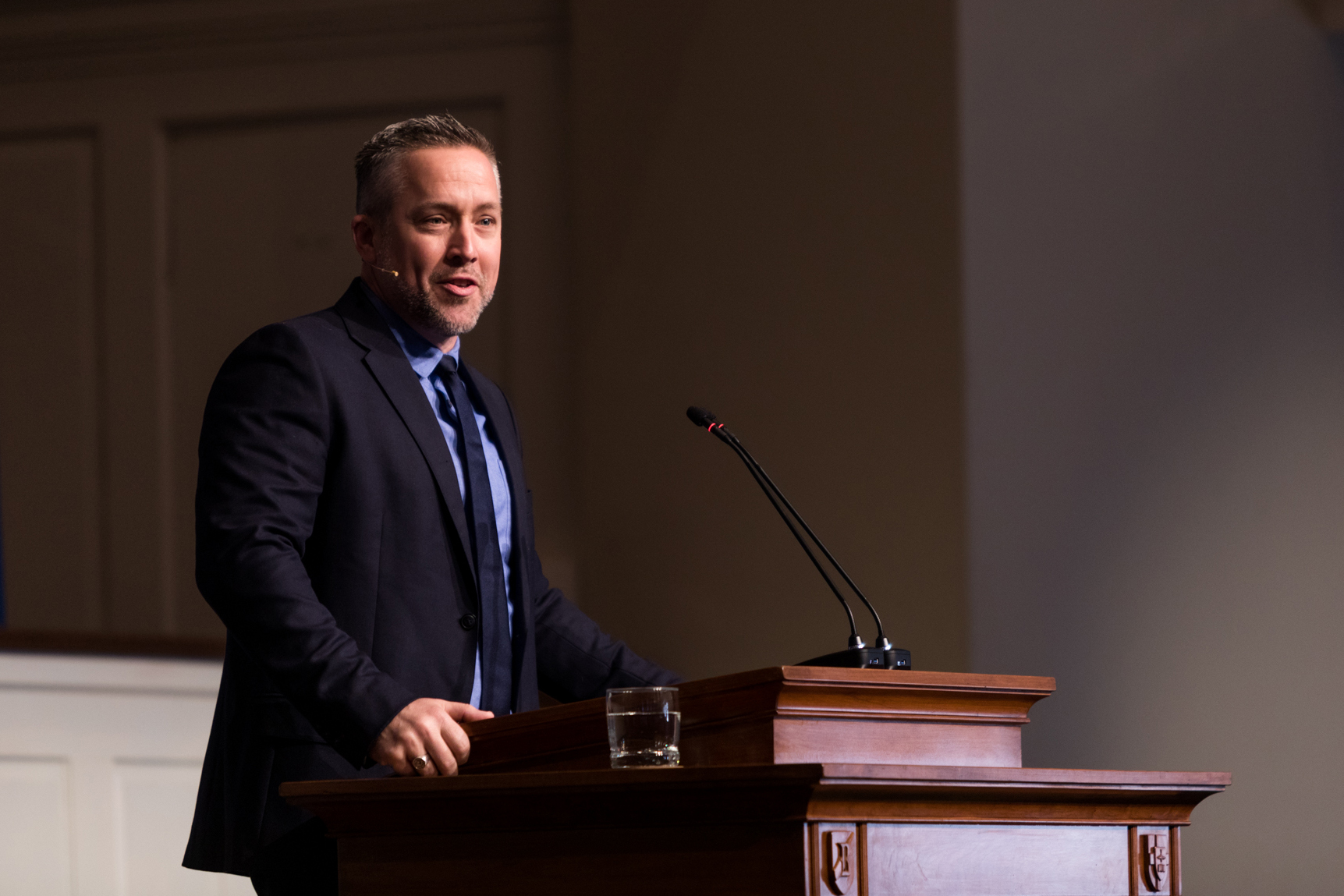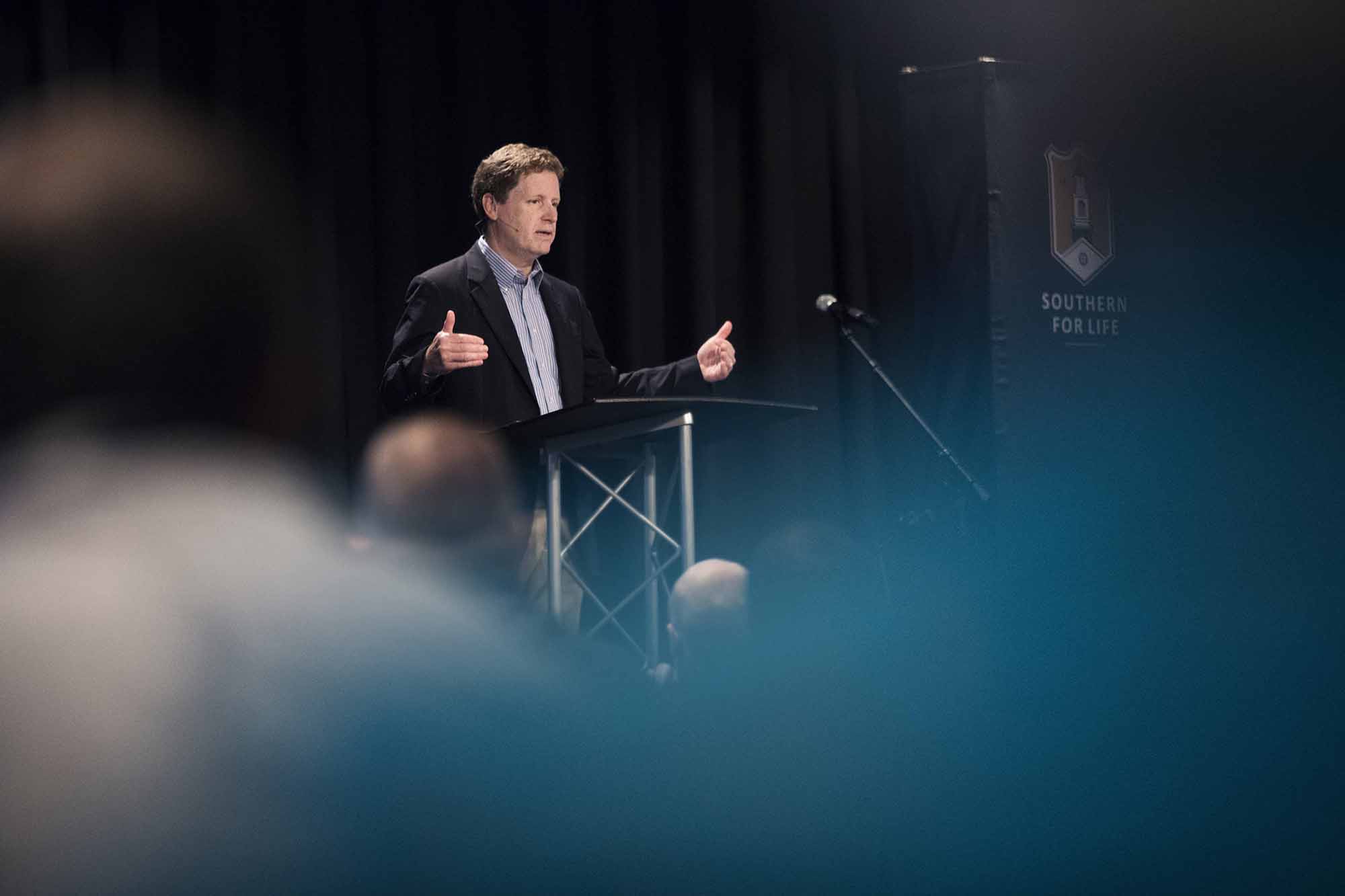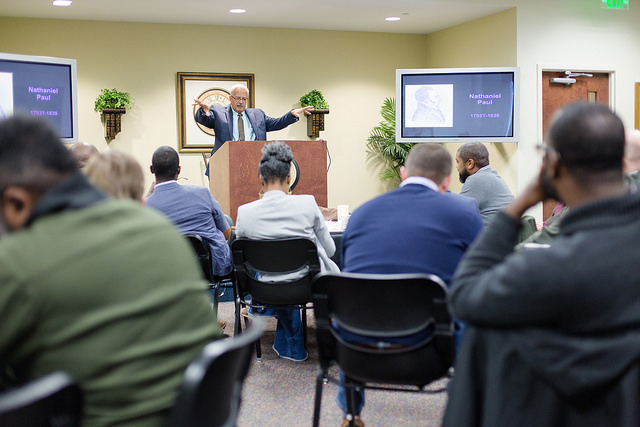
[SLIDESHOW=43321,43322,43323]LOUISVILLE, Ky. (BP) — Participation in the divine nature of God leads to a life of spiritual effectiveness and productivity, said Southern Baptist Convention Executive Committee President Frank S. Page during the Aug. 30 chapel message at Southern Baptist Theological Seminary.
“This divine provision says we are born complete with that which we need for life and godliness,” said Page, a former SBC president who has served as president and CEO of the Executive Committee since 2010. “This means that the DNA necessary for spiritual greatness is already present at the moment of your rebirth. … It shows that God never has to do a recall on any Christian and say, ‘I need to add back something that I failed to put in in the first place.’ It shows this deep, beautiful divine nature that He’s given us is already present in our lives.”
Preaching on 2 Peter 1:3-10, Page said the passage affirms the Gospel, arguing that it is by God’s grace, glory and goodness there is salvation. The seven characteristics of godliness listed in 2 Peter 1 build upon each other and continue to reveal the fruit of salvation.
“We have been given the spiritual DNA for godliness and power — by His glory and by His grace — and for that should we praise His name,” Page said. “I believe what this is saying is simple: That when the divine nature that God has given you at your birth grows up in you to a certain kind of knowledge of Him and godliness in Him, that it becomes very clear that you are a child of God. That you belong. It’s evident not only to you, but it’s evident to those around you.”
Page challenged students to think through what they pray for and to long for a deeper love for God, partaking in the divine nature and growing the seven characteristics to avoid being short-sighted or forgetful, as the passage warns.
William Tyndale
After Page’s sermon, Southern Seminary President R. Albert Mohler Jr. introduced Bible collector David Parsons, founder of Truth Remains in Seattle, who presented a first-edition 1534 English translation of the New Testament by William Tyndale. A central figure in the Protestant Reformation, Tyndale was the first person to translate the Bible into English from the original languages and laid the groundwork for the King James Version almost a century later. According to its website, Truth Remains exists to teach Christian history through its collection of first-edition English Bibles from the Reformation period.
“I want you to know what I hold in front of you this morning is one of the few surviving complete copies [of Tyndale’s translation] of the Gospel of Jesus Christ in English, the New Testament, that exists,” Parsons said.
Saying that it is one of two remaining Tyndale New Testament Bibles in existence, Mohler emphasized that those in attendance would most likely never see one again.
“There are no more of these,” he said, “And the important thing to recognize is this: William Tyndale so believed in the translation of Scripture into the vernacular, into English, that he became a martyr.”
While Christians should not venerate a book as a relic, Mohler said, they should honor the Scriptures, recognizing that Tyndale’s translation played a vital role in one of the most significant periods in church history.
“There would be no Reformation without the translation of Scripture. And in our tradition — the English-speaking tradition — there would be no Reformation, there would be no Baptists, without the translation of the Scriptures into English,” he said. “Tyndale was at work on his translation before Luther nailed his Theses to the door.”
The chapel service also featured a live discussion between Mohler and NASA astronaut Jeff Williams, who appeared onscreen through a downlink interview from the International Space Station.
Audio and video of the chapel message are available at sbts.edu/resources.
